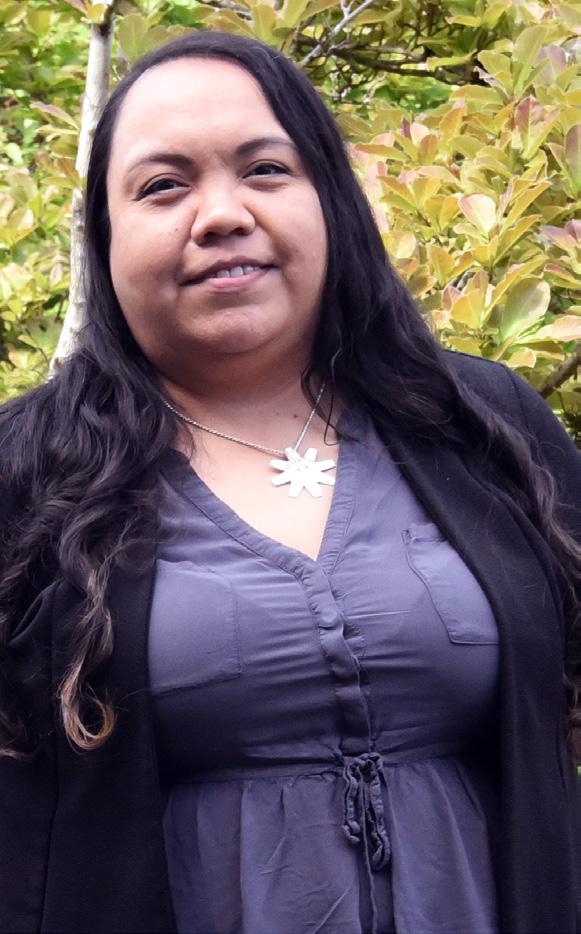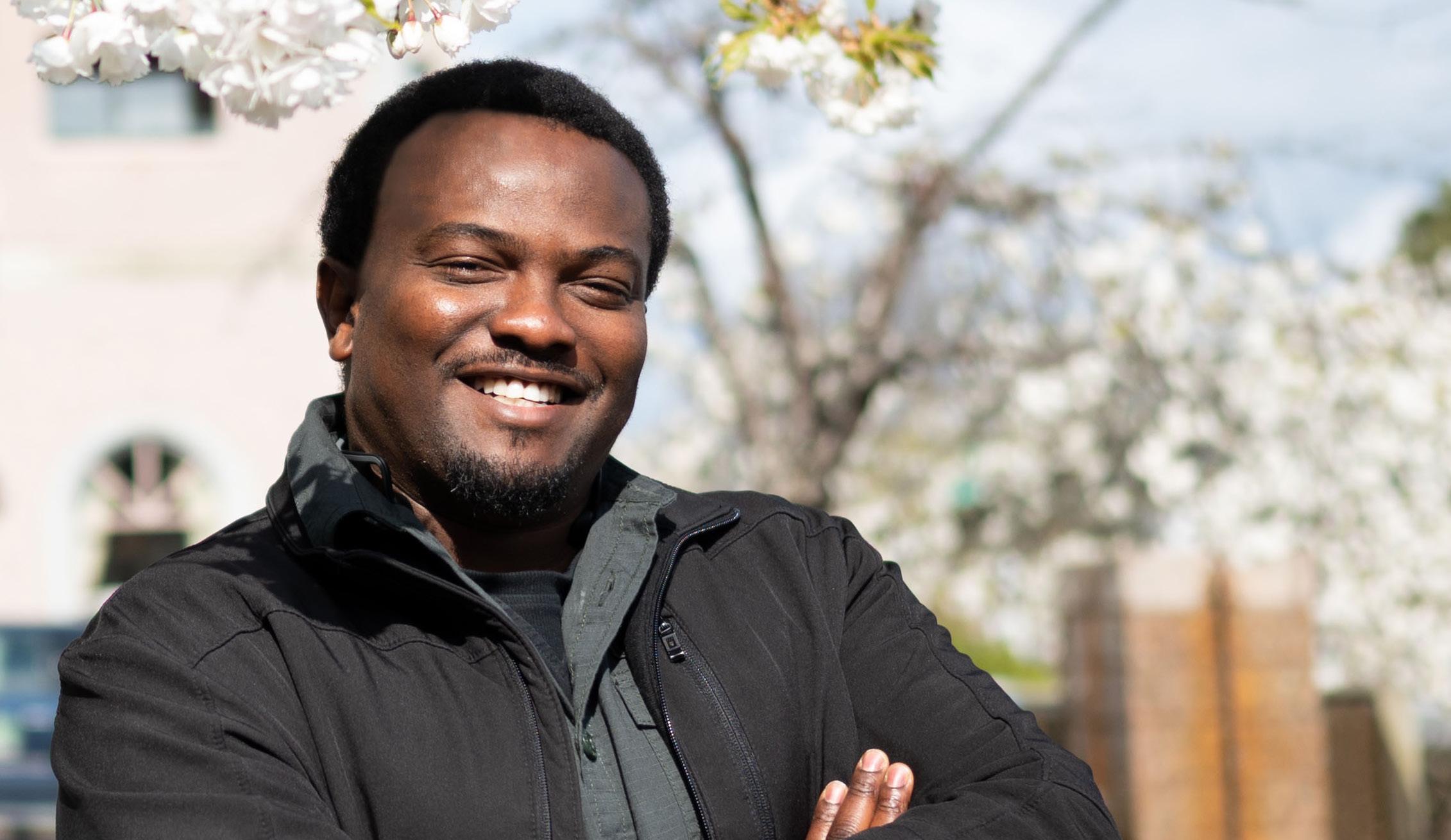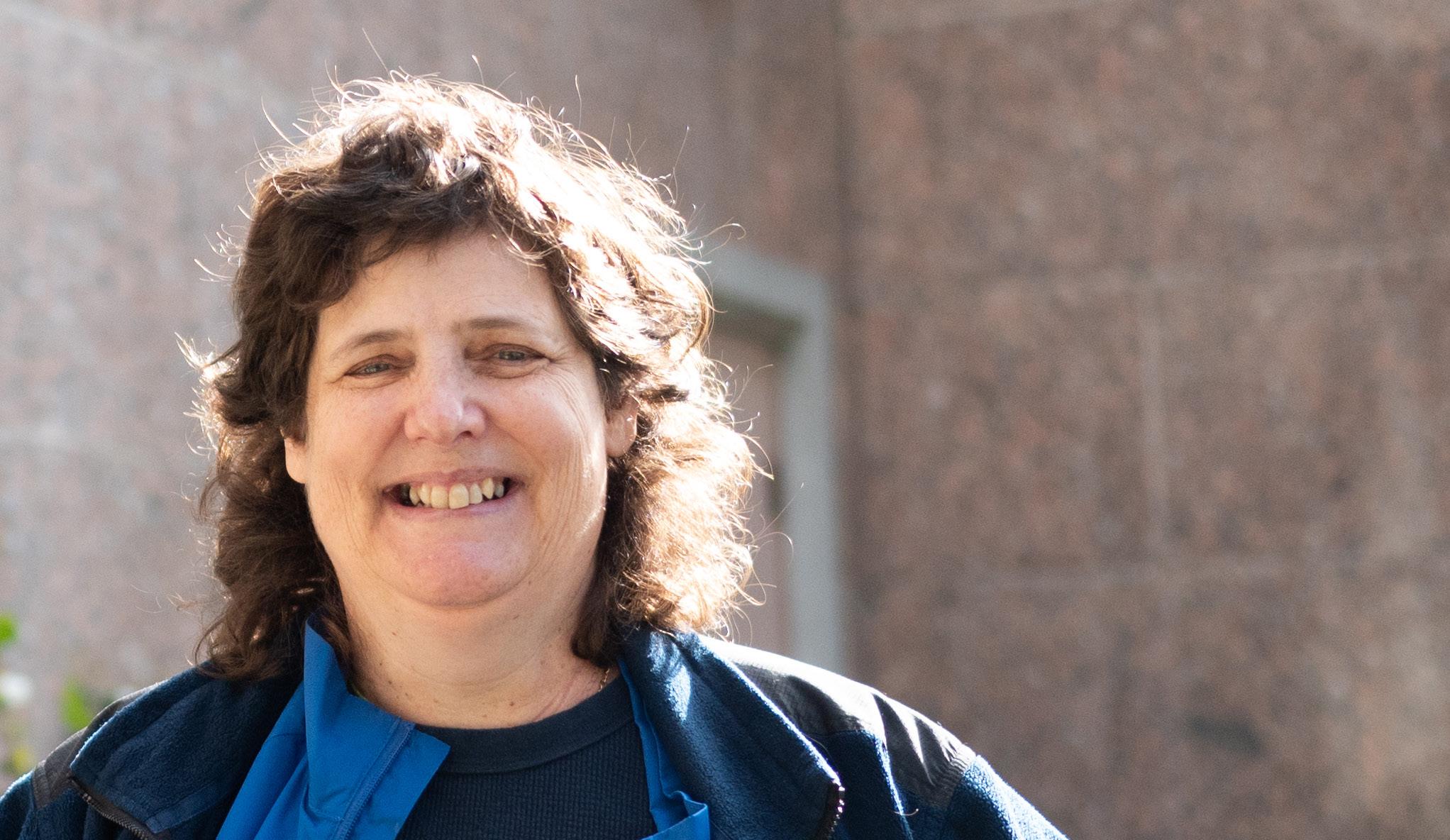
3 minute read
Health care on the move
Since 2005, HEU member Sandra Stephens has been coordinating health services in her community.
After five years as a receptionist with the Nisga’a Valley Health Authority, Stephens became a patient travel clerk.
“We experience a lot of negative feedback from people, and I was scared to take this position,” says Stephens. “Because I worked as a receptionist in this department, I knew the ins and outs of what to expect when I took this job, but I’ve been doing it now since 2010.”
Living in a remote area, residents are often required to travel to bigger cities to access health care.
“I arrange medical travel for them. So, it’s my job to get them to and from their medical appointments – whether it be by driving, by bus, by flying – and then we set up accommodations for them and their return home. If a patient is in need of an escort, I organize that as well.”
Born in Terrace and raised in Laxgalts’ap (also known as Greenville), one of four communities in the Nass Valley, Stephens says working in health care is a way to give back.
“I love helping people. Quite a lot of our own people ask for me and thank me. I’m grateful for that sort of positive feedback that I’ve helped somebody.”
She says building personal connections with patients and clients is the most-rewarding part of her job.
“Knowing what they’re going through, talking to them one-on-one, and just getting to know them is very satisfying.”
Stephens is a shop steward, the secretarytreasurer of her Nisga’a Health Care local, and is currently on the Nisga’a bargaining committee.
“I had a lot of mentors to look up to before they retired, and I asked them what to expect. They gave me tips here and there, but being at the bargaining table is an experience of its own that I’m happy to have.”
To unwind from work pressures, Stephens loves painting and making jewellery.
B.C. women earned 17 per cent less than men.
Critics of the legislation say it does not do enough to close the gender wage gap, and are calling for pay equity legislation guaranteeing the right to equitable pay.
Precarious work common, study finds
Only 49 per cent of workers in B.C. have a “standard job” –defined as a full-time, permanent job with a single employer, with at least some benefits – according to a survey by the Canadian Centre for Policy Alternatives.
The study found that workers in “non-standard” jobs were far more likely to see their income vary from week to week, to work on-call, and to work multiple jobs. Almost half of them earned less than $40,000 a year.
And one-quarter of the respondents said they’d be concerned that raising a health or safety issue in their workplace would negatively affect their employment.

“Precarious jobs mean workers are experiencing insecurity, instability, low pay, a lack of access to benefits, and negative impacts on physical and mental health, all of which have consequences not only for them but also for their families, their communities and our society,” the report concludes.
The survey is part of a larger, ongoing investigation on precarious work in B.C.
Our study finds that the burden of precarious work falls more heavily on racialized and immigrant communities, Indigenous peoples, women, and lower-income groups, compounding systemic and intersecting inequalities.
Defining duties
HEU members work in more than 270 job classifications. Do you know what our members do?

1 2 3 4
The stress levels of these HEU members are commonly compared to those of “air traffic controllers.” a. switchboard operators b. nursing unit assistants (unit clerks) c. bed booking clerks d. fire and safety officers a. cleaners, dietary aides, computer operators b. food service supervisors, coordinator of volunteers, administrative assistants c. laundry workers, food service workers, housekeeping supervisors d. bakers, housekeeping aides, laundry workers a. plumbers b. carpenters c. electricians d. power engineers a. pathology attendants b. medical lab assistants c. pharmacy assistants d. ophthalmic technicians
Which combination of workers represents HEU’s support services team?
The “first responder” to workplace fires or floods, these HEU members are charged with the safe, continuous operation of a facility, as well as isolating ventilation systems and monitoring incoming city water.
Also known as a phlebotomist, these HEU members draw blood samples to assist with diagnosis and treatment.
HEU MEMBERS:
Send us your answers to be entered to win a prize!
Go to heu.org/coffeebreak and submit your answer online by July 15, 2023.

Answers: b, c, d, b
Deva Wood is secretary-treasurer of her local and shop steward. She says her job is rewarding and loves knowing that she’s made a difference in the lives of others. “Being involved in the union has introduced me to a community of like-minded people who understand my challenges and my motivations.”












